Louise Wener rose to prominence as part of the Britpop movement in the mid-Nineties. While Blur and Oasis flew the flag for laddism and Suede flirted with camp glam, Wener was one of the scene’s few high-profile women, inspired by David Bowie, Morrissey and Debbie Harry. Her band Sleeper released eight Top 40 singles, most memorably “Inbetweener”, and three hit albums. They supported Blur and toured America and Japan, but Wener became disillusioned with the sexism and machinations of the music industry, where it was often assumed she was the token woman in the band rather than the co-songwriter. Sleeper split up in 1998 and Wener started to write fiction, publishing four novels. In 2010 she published her colourful account of her journey from suburbia to stardom, Different for Girls. It was recently published in paperback under the title Just for One Day: Adventures in Britpop.
I'm dipping in and out of two books, Heartburn and Crazy Salad, both by Nora Ephron. Heartburn is a novel based on the break up of her marriage and manages to be tender, acerbic and very funny all at once. Crazy Salad is a collection of essays and journalism that she wrote in the late Sixties and Seventies. Again, the writing is brilliantly observed and covers subjects like Watergate and the women's movement in a way that makes you look at them afresh. I love her writing.
[Excerpt from Crazy Salad by Nora Ephron (Random House 2000)]
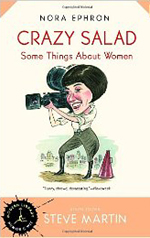 I started with a 28AA bra. I don’t think they made them any smaller in those days, although I gather that now you can buy bras that don’t have any cups whatsoever in them; trainer bras they are called. My first brassiere came from Robinson’s Department Store in Beverly Hills. I went there alone, shaking, positive they would look me over and smile and tell me to come back next year. An actual fitter took me into the dressing room and stood over me while I took off my blouse and tried the first one on. The little puffs stood out on my chest. “Lean over,” said the fitter. (To this day I’m not sure what fitters in bra departments do except to tell you to lean over.) I leaned over with the fleeting hope that my breasts would miraculously fall out of my body and into the puffs. Nothing.
I started with a 28AA bra. I don’t think they made them any smaller in those days, although I gather that now you can buy bras that don’t have any cups whatsoever in them; trainer bras they are called. My first brassiere came from Robinson’s Department Store in Beverly Hills. I went there alone, shaking, positive they would look me over and smile and tell me to come back next year. An actual fitter took me into the dressing room and stood over me while I took off my blouse and tried the first one on. The little puffs stood out on my chest. “Lean over,” said the fitter. (To this day I’m not sure what fitters in bra departments do except to tell you to lean over.) I leaned over with the fleeting hope that my breasts would miraculously fall out of my body and into the puffs. Nothing.
“Don’t worry about it,” said my friend Libby some months later, when things had not improved. “You’ll get them after you’re married."
“What are you talking about?” I said.
“When you get married,” Libby explained, “your husband will touch your breasts and rub them and kiss them and they’ll grow."
That was the killer. Necking I could deal with. Intercourse I could deal with. But it had never crossed my mind that a man was going to touch my breasts, that breasts had something to do with all that, petting, my God, they never mentioned petting in my little sex manual about the fertilization of the ovum. I became dizzy. For I knew instantly – as naive as I had been only a moment before – that only part of what she was saying was true: the touching, rubbing, kissing part, not the growing part. And I knew that no one would ever want to marry me. I had no breasts. I would never have breasts.
I read Imogen by Jilly Cooper in my teens on a disastrous family camping trip to Brittany. It's a classic Cinderella story in which a timid librarian with no experience of men blossoms into great beauty and bags her glamorous man. It's set on the French Riviera and filled with characters who are models, gangsters and international tennis pros. I think it rained the entire time we were on holiday but Imogen's fantasy travels kept me going. Everyone drinks an exorbitant amount of booze and gets off with everyone else's boyfriend. I loved that book so much, I probably read it five times in a row.
[Excerpt from Imogen by Jilly Cooper (Corgi 2005)]
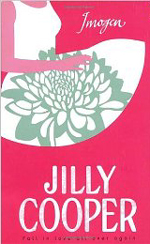 The little West Riding town of Pikely-in-Darrowdale clings to the side of the hillside like a grey squirrel. Above stretches the moor and below, in the valley, where the River Darrow meanders through bright green water meadows, lies Pikely Tennis Club. In the High Street stands the Public Library.
The little West Riding town of Pikely-in-Darrowdale clings to the side of the hillside like a grey squirrel. Above stretches the moor and below, in the valley, where the River Darrow meanders through bright green water meadows, lies Pikely Tennis Club. In the High Street stands the Public Library.
It was Saturday afternoon in May. Miss Nugent, the Senior Librarian, put down the mauve open-work jumper she was knitting and helped herself to another Lincoln Cream.
“I’ve never known it so slack,” she said to the pretty girl beside her, who was dreamily sorting books into piles of fiction and non-fiction and putting them on a trolley. “Everyone must be down at the tournament. Are you going, Imogen?”
The girl nodded. “For an hour or two. My sister’s raving about one of the players – some Wimbledon star. I promised I’d go and look at him.”
“I’m sorry you had to work this afternoon,” said Miss Nugent. “You’re always standing in for Gloria. I wonder if she really was ‘struck down by shellfish’. I’m going to ring up in a minute and see how she is.”
“Oh, I wouldn’t do that,” said Imogen hastily, knowing perfectly well that Gloria had sloped off to Morecambe for the weekend with a boyfriend, “The – er – telephone in her digs is in the hall, and I’m sure she’s feeling far too weak to stagger down two flights of stairs to answer it.”
Feeling herself blushing at such a lie, she busied about stacking up leaflets entitled Your Rights as a Ratepayer and What to do in Pikely. Bugger all, Gloria always said, in answer to the latter.
Miss Nugent burrowed inside her cream rayon blouse, and hauled up a bra strap.
“Decided where to go for your holiday yet?”
“Not really,” answered Imogen, wishing some reader would come in and distract Miss Nugent’s attention. “My father’s swapping with a vicar in Whitby in September. I might go with him.”
I haven't been on holiday yet but in a case of pleasing symmetry, we're going camping in France. In which case, I might re-read Imogen in case it rains. I'm travelling with small children so there's little time to read anything heavyweight or serious. It'll have to be something I can pick up and put down, and read in bite-size pieces. Perhaps Keith Richards' autobiography. I love a good, trashy thriller, but whatever it is, it won't be gory. I'm always slightly disturbed by the rows and rows of seemingly mild-mannered people, shiny with sun oil and savouring Steig Larsson on the beach.
[Excerpt from Life by Keith Richards (Weidenfeld & Nicolson 2010)]
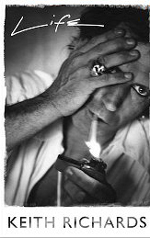 We did many miles on the ground in the those early tours. Roadhouses were always an interesting gamble. And you’d better get ready for it – and be ready for it. You try going to a truck stop in 1964 or ’65 or ’66 down south or in Texas. It felt much more dangerous than anything in the city. You’d walk in and there’s the good ol’ boys and slowly you realise you’re not going to have a very comfortable meal in there, with these truckers with crew cuts and tattoos. You nervously peck away – “Oh, I’ll have that to go, please.” They’d call us girls because of the long hair. “How you doing, girls? Dance with me?” Hair... the little things that you wouldn’t think about that changed whole cultures. The way they reacted to our looks in certain parts of London then was not much different from the way they reacted to us in the South. “Hello, darling,” and all that shit.
We did many miles on the ground in the those early tours. Roadhouses were always an interesting gamble. And you’d better get ready for it – and be ready for it. You try going to a truck stop in 1964 or ’65 or ’66 down south or in Texas. It felt much more dangerous than anything in the city. You’d walk in and there’s the good ol’ boys and slowly you realise you’re not going to have a very comfortable meal in there, with these truckers with crew cuts and tattoos. You nervously peck away – “Oh, I’ll have that to go, please.” They’d call us girls because of the long hair. “How you doing, girls? Dance with me?” Hair... the little things that you wouldn’t think about that changed whole cultures. The way they reacted to our looks in certain parts of London then was not much different from the way they reacted to us in the South. “Hello, darling,” and all that shit.
When you look back it was relentless confrontation, but you’re not thinking about it at the time. First off these were all new experiences and you were not really aware of the effects it might or might not have on you. You were gradually growing into it. I just found in those situations that if they saw the guitars and knew you were musicians, then suddenly it was totally OK. Better take a guitar into a truck stop. “Can you pick that thing, son?” Sometimes we’d actually do it, pull out the guitars, sing for our supper.
But then all you had to do was cross the tracks and you’d get a real education. If we were playing with black musicians they’d look after us. "Hey, you wanna get laid tonight? She’ll love you. She ain’t seen anything like you before." You got welcomed, you got fed and you got laid. The white side of town was dead but it was rocking across the tracks. Long as you knew cats you was cool. An incredible education.

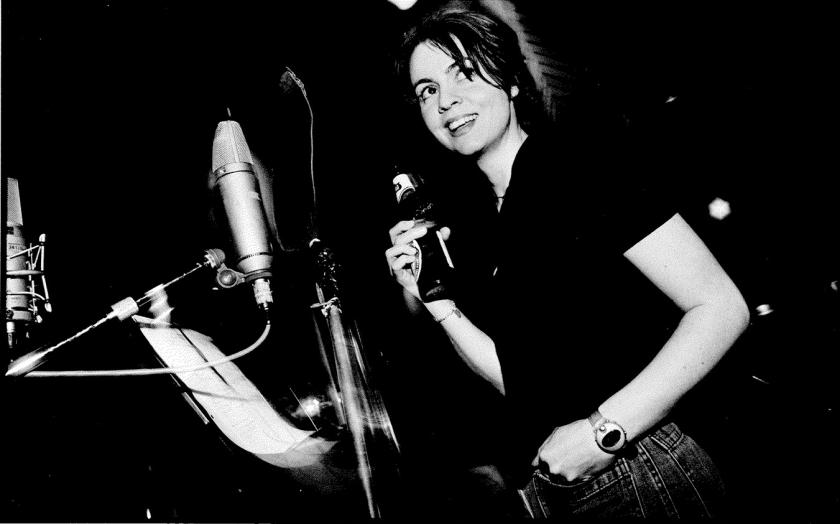

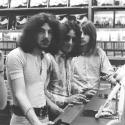




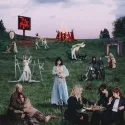

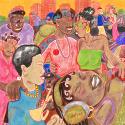

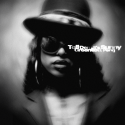


Add comment